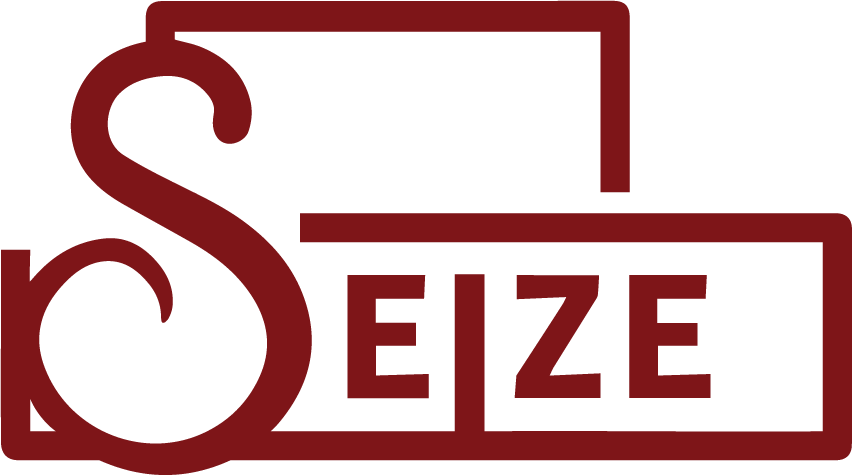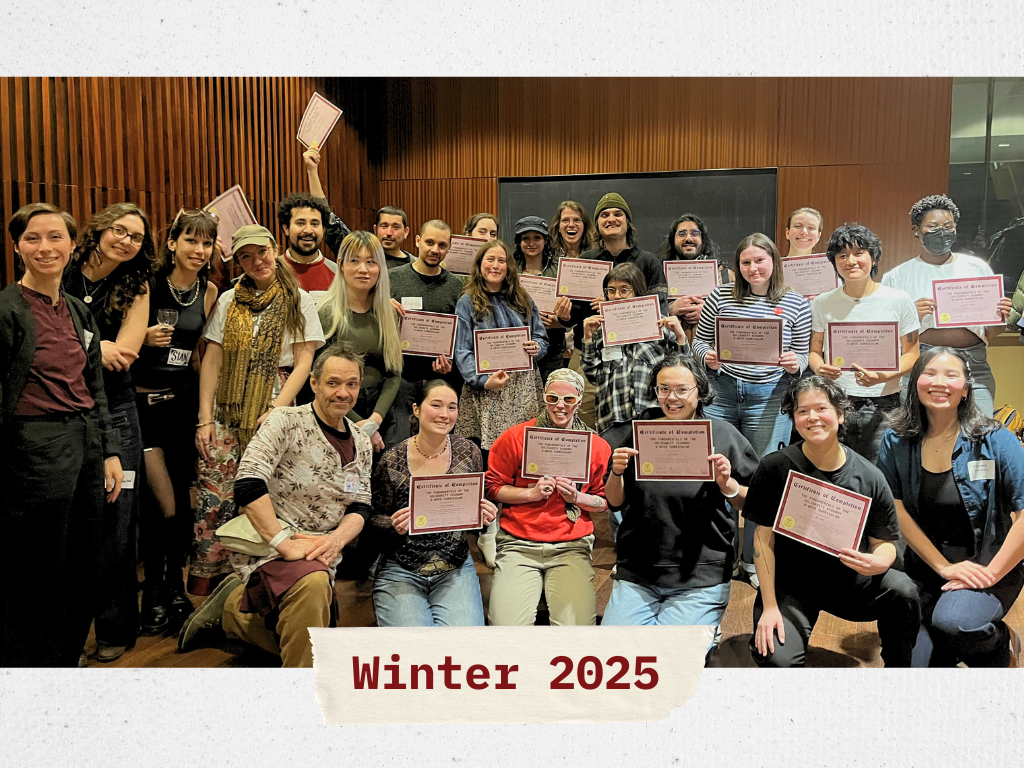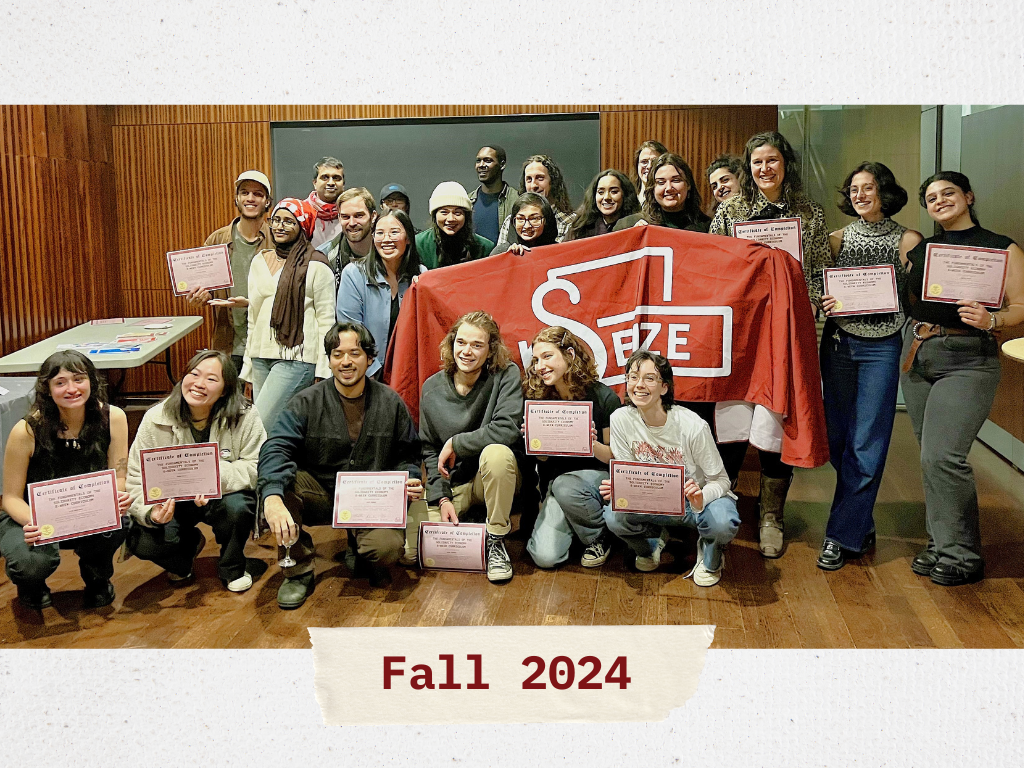
To build a more just and sustainable world, we need to transform our economy. But how? This eight week curriculum introduces the global solidarity economy movement and helps participants understand their place in it.
The solidarity economy organizing certificate covers examples and practices of the solidarity economy movement through hands-on popular education methods, experimentation and participatory discussion. Participants will leave with a roadmap for their own participation in a global movement, an understanding of what skills and relationships they will develop, and a Certificate in Solidarity Economy Organizing.
The curriculum has two cohorts per year; a Fall semester starting in Septemeber and a Winter semester starting in January.
Meet some of the 200+ incredible humans that have graduated!
To graduate from the "Fundamentals of the Solidarity Economy" Curriculum participants must complete 6 out of the 8 modules!
If you have any questions about the curriculum, don't hesitate to reach out to us:

Fall 2025
Beginning September 2025,
more details to come
Curriculum Modules
(subject to change)
The Curriculum Committee convened in May 2025 to reflect on the 2024–2025 cycle of the Fundamentals of the Solidarity Economy program. The Committee (consisting of curriculum participants, the program coordinator, and SEIZE worker members) have developed a set of recommendations to strengthen and refine the program. These recommendations will be implemented in the upcoming program year, beginning in Fall 2025.
1
Foundations of the Solidarity Economy: WTF is a Co-op?
The course begins with an overview: Setting expectations, and going over the fundamental definitions we will be using in the course. We will follow this with a brief introduction of SEIZE, its position within the social-solidarity economy movement in Montreal/Quebec/Canada, and the way the SEIZE network operates.
Cooperation is about people coming together to meet a common need. Coops make up a significant piece of the social and solidarity economy and have their own legislation. In this module, we will explore how the cooperative movement has evolved over the centuries to manifest into formal business models that center people, community, and the environment. We’ll also look at how and why coops form in Quebec and Canada.

- A basic overview of the social solidarity economy and the diverse economy
- General understanding of SEIZE and our theory of change
- Types of Co-ops and why they form
- Democratic Governance
- Comparing Co-ops to other business models

- The intersection between the crisis of capitalism and the climate crisis
- How capital centered economies have manifested and how they can be characterized as separate from the economy as a whole.
- The feminist critique of capitalism
2
Capitalism and Ecocide
What does capitalism mean and what are the relationships between land-capital-labor that enable it? What are the feminist and environmentalist approaches to organizing against capitalism? We will go through specific examples to see a history of anticapitalist struggle, how they have emerged in opposition to the climate crisis, identify some of the main experiments, and explore their strengths and shortcomings.
3
Anti-Oppression &
Pro-Solidarity
Capitalism may be the dominant economic system of the past few centuries, but far from being a singular force of social coercion, it instead acts as a carrier for other toxic institutional forces, including colonialism, patriarchy, and imperialism, to name but a few. Movements have risen to challenge and assert new paradigms, while developing their own language to help us better understand systemic oppressions (and each other).
The challenge for solidarity organizers is to understand the historical context of oppression and the personal context of trauma, and to see the way these interlink, such that we can recognize and uplift the humanity of those we (seek to) work with, without straying into essentialism. We will discuss what aligned intersectional organizing, otherwise known as solidarity, looks like.
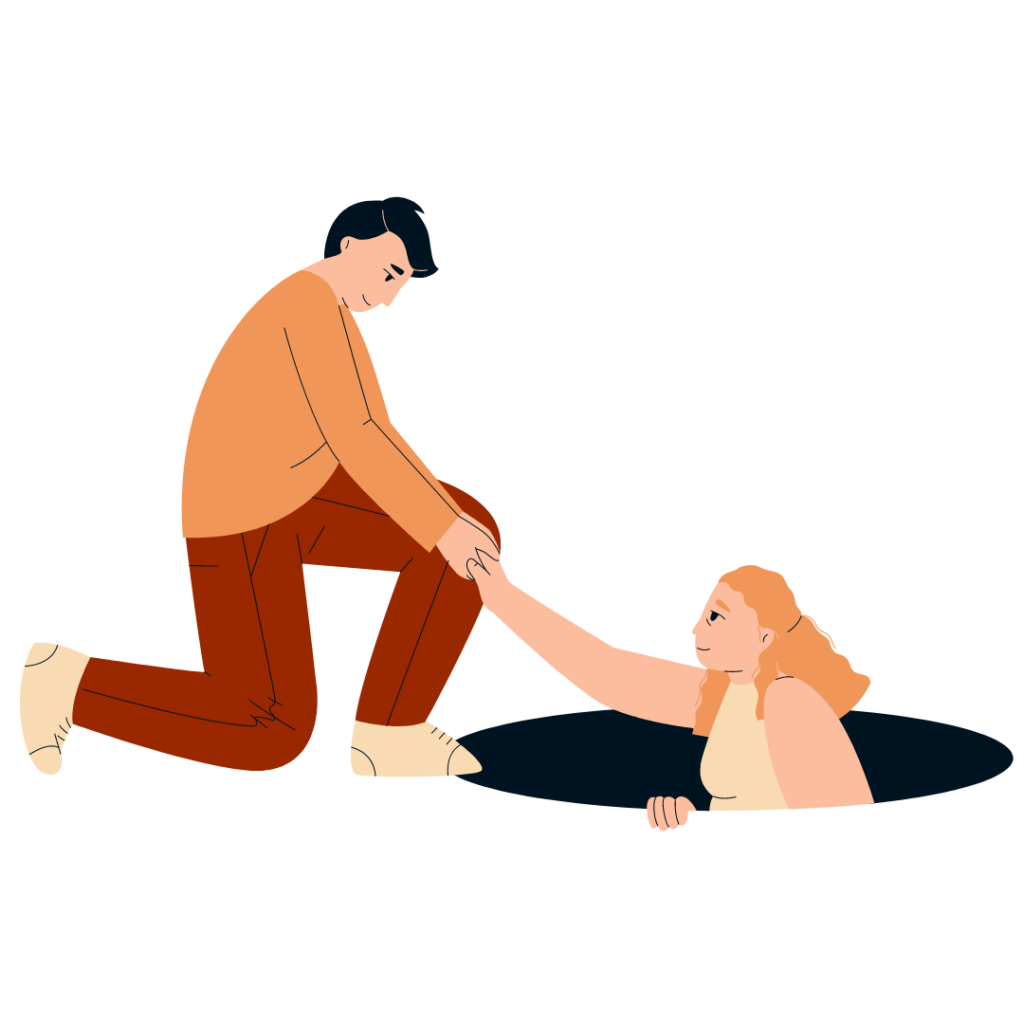
- How and what it means to be charitable in our interactions, and to act with integrity
- A framework of how to integrate solidarity with marginalized people into our work
- A sensitivity to analyzing the nuance of emerging social paradigms
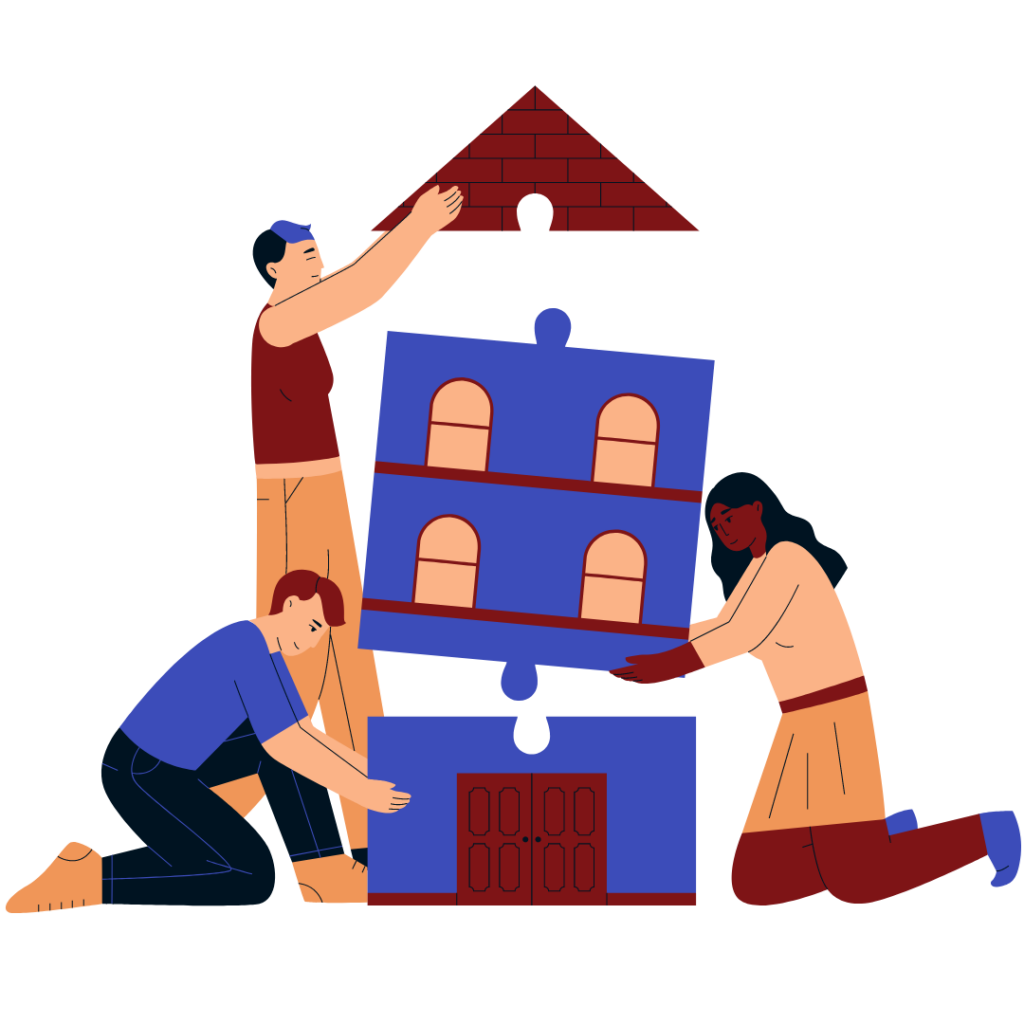
- Understanding of how the speculative real estate market is confronted through land trusts and housing cooperatives
- The tenant organizing movement in Montreal and beyond
- Knowledge of alternative housing models aligned with the “housing as a human right movement”
4
Organizing out of a Housing Crisis
In this session, participants will explore alternatives to the speculative real estate market, beginning with a deep dive into land trusts and their role in creating affordable, community-controlled housing. The discussion will cover how these models work, their relevance in Canada, and how they can help combat the housing crisis. But that’s not all—this workshop also delves into the power of tenant organizing. Participants will learn about the vital role of tenant unions, such as SLAM, in fighting for housing as a human right. The workshop will cover how these movements are challenging the status quo and creating real change for renters.
By the end of the workshop, participants will have a solid understanding of how land trusts and tenant unions can be powerful tools in the fight for affordable housing. Whether they are new to these concepts or looking to get more involved, this workshop will provide the insights and strategies needed to support and advocate for alternative housing models in their community.
5
How to Organize a Union:
Best Practices
The labor movement has been the single greatest challenge to industrial capitalism, and has as its most basic unit the union. Unions have won incredible victories against entrenched capitalist powers that have carved out a middle class and empowered countless millions of estranged workers. Unfortunately, with the rise of global neoliberalism, unions have been on the long-term decline, with only around 30% of Canadian workers now being represented through a union.
However, unions are once more on the rise, and the burgeoning labor movement has started to take root, exploding in the States, and following in Canada, with the first Starbucks union bearing fruit in Victoria, BC, a little over a year ago. We will discuss the fundamentals of unionism, the various forms of unions, and what it takes to begin a union organizing drive, drawing from such models as the Industrial Workers of the World (IWW), and their approach to building worker power through solidarity unionism.
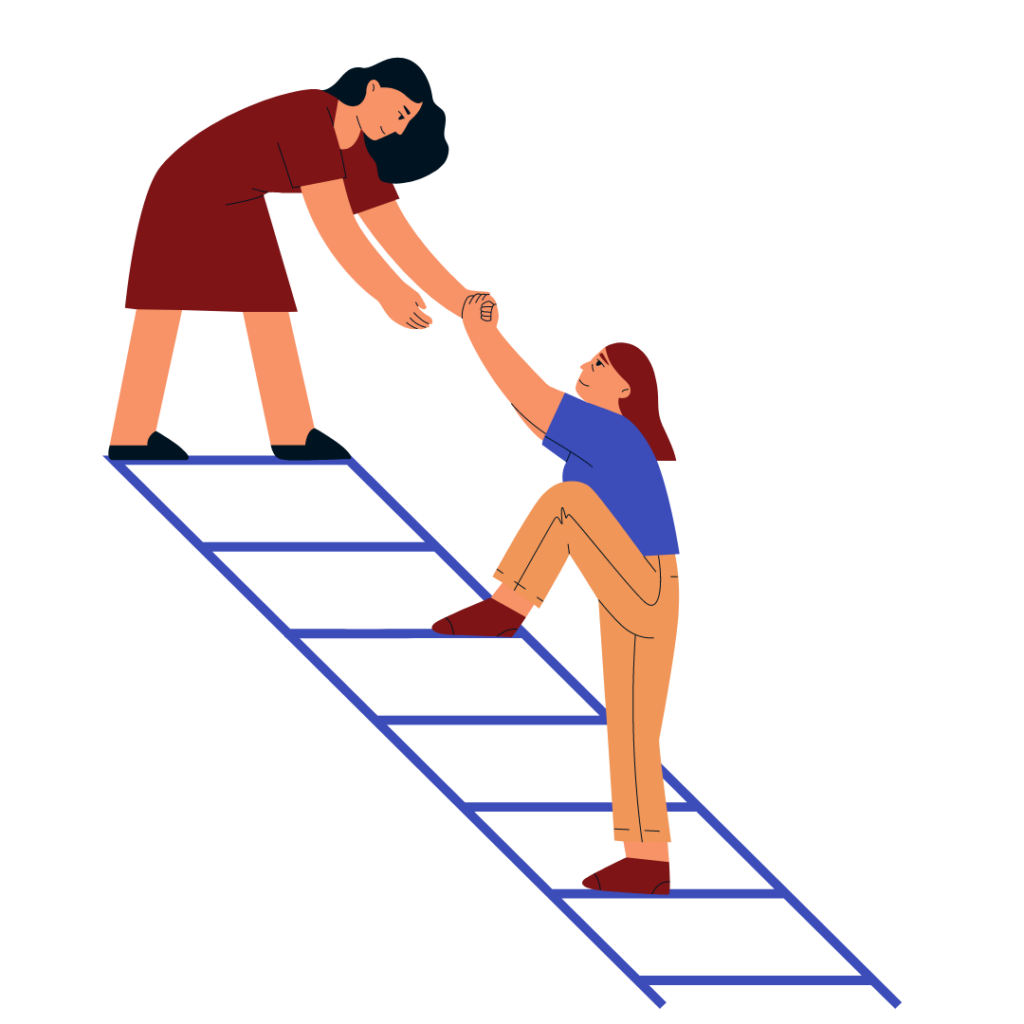
- General knowledge of Solidarity unionism and basic IWW tactics
- Immigrant worker conditions and how asymmetric information in the workplace is weaponized
- The labor movement, its intricacies, and how to build power within their workplace.
- Understanding of the steps involved in organizing a union at your workplace
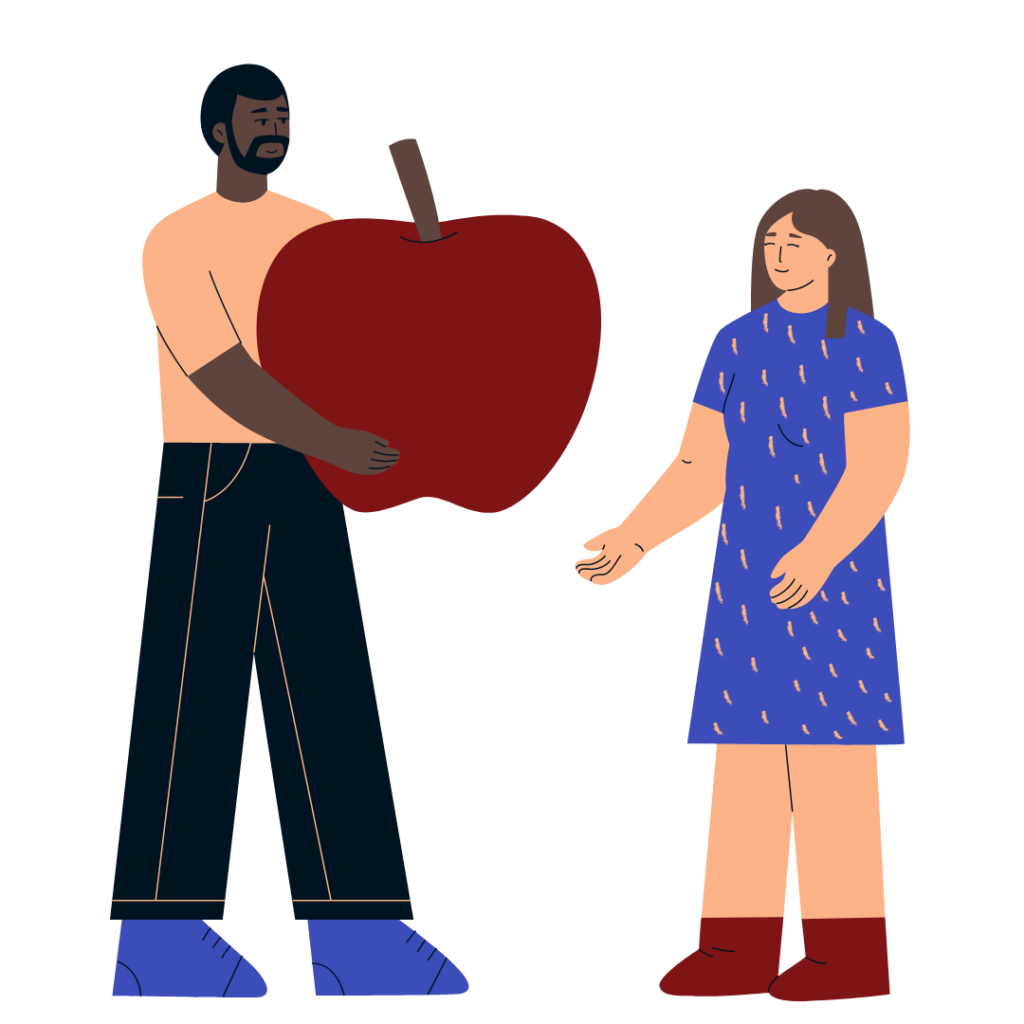
- the role food plays in the larger SSE movement
- the necessity of localizing our efforts
- a map of the Concordia SSE food system.
- Understanding of Canada’s migrant worker program, and its impacts on the food system
6
Food Revolutions
The importance of food, and our relationship to it, is difficult to overstate within both the theoretical frameworks of developing the social & solidarity economy, and the practical experiences as grassroots organizers seeking to bring communities together.
This session gives an overview of food movements (from field to fork) in Canada, drawing on local examples (i.e., Concordia University’s own food movement), and national (and even international) examples that weave together the complexity of food production, labour rights, migration and citizenship.
7
Building Power for the Solidarity Economy
While capitalist accumulation threatens coastlines, forests, ecosystems and the survival of humanity as we know it, is the actually-existing vision of a solidarity economy up to the task? We’ll look at some unexamined assumptions about co-existing with capitalism and the colonial state, and think about how the solidarity economy can actively contest the foundations of the capitalist state to uproot and revolutionize it into a sustainable system.
We will go over our approach at SEIZE, drawing from real world examples, and building a theoretical model of how to secure (and entrench) successes and victories for the SSE. We will then reflect on building power strategically in different sectors and movement building as a way of carrying out this work.

- Importance of structure and good institutional design
- Some of the challenges the solidarity economy faces in scaling up
- The importance of collective, political organizing for effective decolonization
- Movements relationship with a partner State to enable and accelerate change

- The co-founding process of collective entrepreneurship
- Challenges of co-founding a social enterprise and how to organize to overcome challenges collectively
- General understanding of how to apply community organizing and collective governance into your projects
- Participants will face real-life challenge scenarios and collectively find solutions to it
8
Imaginary Coops: Enacting Praxis
In our final module, participants will embark on a hands-on experience of collective entrepreneurship. In this interactive session, small teams will form imaginary co-ops and go through the initial co-founding steps together!
The workshop begins with the team developing a mission, vision, and values for their co-op, followed by determining a basic business model. In the second half, participants will face scenarios inspired by real-life challenges that social-solidarity economic organizers often encounter. With the guidance of the course instructor, they will learn how to overcome these obstacles and apply collective governance and community organizing principles to their projects.
